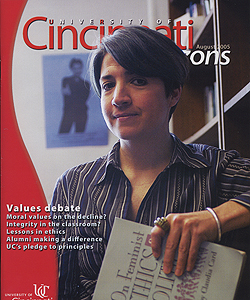Three scenarios to test your judgment
Pained by her dilemma, a third-year med student paces the hospital hallways. Shambling to within six floor tiles of the attending doc's doorway, she stops, mulls over her reasoning and reverses both her direction and her decision. Hours have passed since she confirmed the sinking feeling that she dispensed a double, yet unharmful, dose of antibiotics to the patient in Room 512 yesterday. Chances are nobody will ever notice the error, and owning up may hurt her career. What would you do?
Assigned to write a rejection letter to the applicant for an executive position, a recruiter struggles with how to explain why the well-qualified job seeker should look elsewhere. Though usually a routine task, the company president complicated matters when he suggested, by way of e-mail, that the letter should be blunt in advising the applicant to hold his tongue when it comes to religious matters in future interviews. The recruiter, relieved to be working again during a lean job market, is left in a quandary. If he tones the letter down to be less offensive and more generic -- Something like: "We found a better fit." -- does he then become part of a conspiracy to cover up employment discrimination? What would you do?
Working for a firm known for its inclination toward quick settlements over lengthy court battles, a young lawyer is assigned a product liability case in which a 9-year-old boy suffered a concussion and a broken arm after the axle of the scooter he was riding snapped. Though the manufacturer claims the malfunction resulted from abuse, there is mounting evidence of a defect in workmanship. During negotiations, the defendant's legal team forwards a substantial settlement in exchange for a complete confidentiality agreement from the family. The family, pleased with the offer but concerned others might be injured, defers to their attorney's judgment. A partner in the firm advises to settle and move on to the next case. What would you do?

 Past Issues
Past Issues